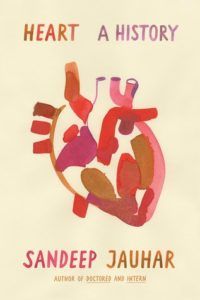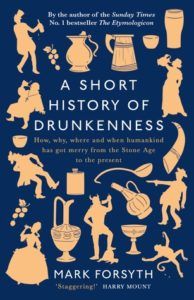But if your manner of coping includes an insatiable need to understand our current predicament—to learn about this new way of living—microhistories are perfect resources. These hyper-focused, long-term looks at everyday objects can open your eyes to the wonders (or, occasionally, horrors) you take for granted. The following microhistories focus their precise, thorough sights on certain aspects of our current socially distanced pandemic reality.
At Home: A Short History of Private Life by Bill Bryson
Bryson’s place on this list is a given. After all, everyone’s favorite avuncular historian has written A Short History of Nearly Everything. In At Home, however, the universe Bryson explores is his own house, originally a Victorian parsonage. Going room by room, he outlines various aspects of the history of (predominantly Western) domesticity, from the earliest human settlements through the Middle Ages and up to our modern moment.
The Address Book: What Street Addresses Reveal About Identity, Race, Wealth, and Power by Deirdre Mask
Let’s stay at home a moment longer with this newly released treatise on hidden stories of street addresses. In her exploration of the historical purpose of addresses, Mask crisscrosses the globe and goes as far back in time as Ancient Rome. What she reveals is a wondrous and often disquieting history of inequality, oppression, and racism, marked (or sometimes left unmarked) by street names and numbers.
The Dirt on Clean: An Unsanitized History by Katherine Ashenburg
Hygiene and cleanliness are two topics at top of mind—at least as the many, many internet hand-washing how-to videos would indicate. While the wisdom of thorough hand-washing isn’t in question, Ashenburg does examine the origins of our modern conceptions of cleaning, bathing, and grooming. Who knew the history of soap and water would yield such insights into cross-cultural ideas of health, sexuality, and morality?
Quackery: A Brief History of the Worst Ways to Cure Everything by Lydia Kang and Nate Pedersen
Unfortunately but not unexpectedly, this global health crisis has produced its fair share of fake cures and snake oil salesmen, some peddled by those in positions of power…This engrossing and often gross microhistory catalogues tried-and-untrue medical “treatments.” Some of these bizarre and dangerous efforts you may be familiar with (bloodletting, of course, makes an appearance). Others, like tobacco smoke enemas, hopefully will be new to you.
Heart: A History by Sandeep Jauhar
If the onslaught of COVID-19 news has reiterated anything to me, it is the deep and resounding mysteries of the human body. Jauhar, a cardiologist, takes us straight to the center of us all: the human heart. In this ode to the ticker, Jauhar interweaves his own personal and family story with the stories of those who pioneered the study and treatment of this vital but still enigmatic organ.
Buzz: A Stimulating History of the Sex Toy by Hallie Lieberman
I can make no comment, of course, on how you’re spending your alone time. Regardless, you may find this a stimulating read. Sex historian Lieberman, whose dissertation was on sex toy history, dives into the fascinating journey of the vibrator, from social taboo to cultural norm. (For those having a slightly different at-home experience, consider Mary Roach’s Bonk: The Curious Coupling of Science and Sex.)
The Monopolists: Obsession, Fury, and the Scandal Behind the World’s Favorite Board Game by Mary Pilon
Much like the capitalist system it gamifies, Monopoly’s backstory is wild, weird, litigious, and deeply problematic. While a magnificent way to kill several hours, the ubiquitous board game has a forgotten past, starting with the work of 19th century progressive feminist Lizzie Magie. How her Landlord’s Game was perverted and subverted by the Parker Brothers Company is an absorbing social history.
A Short History of Drunkenness by Mark Forsyth
Those who’ve been cooped up for the past months likely have noticed that time truly is a construct—and every hour can be happy hour if you believe in yourself. This is your book, friends. Forsyth traces drinking practices through ages and around the world to craft this funny, zippy, downright bubbly compendium. While the tone is heavy on humor, the research behind these histories is as clear and crisp as ale.
The Pattern in the Carpet: A Personal History with Jigsaws by Margaret Drabble
As NPR reports, puzzle sales are up by more than 300%. It seems only right to read up on when and why the jigsaw puzzle came to be. Celebrated novelist Drabble pens a book that is part microhistory and part memoir. Interspersed with jigsaw puzzle facts are reflections on the role puzzles and games played in her childhood and family life. It’s an unusual, engaging work that teaches you as much about the author as it does about puzzle-making.
Holy Sh*t: A Brief History of Swearing by Melissa Mohr
Does this pick need explanation? This book is a mood. A scholar of medieval and Renaissance literature, Mohr guides us through the two historical wings of swearing: the oath-taking sacred and the foul-mouthed secular. She traces obscenities as they evolve and how the realm of profanity shifts with changing cultural moments. From William Shakespeare to George Carlin, the cursing documented here covers the bases. Curious for more microhistory recommendations? Check out Book Riot’s list of 50 Must-Read Microhistory Books. For more stories about the bookish response to COVID-19, see our curated community updates.



